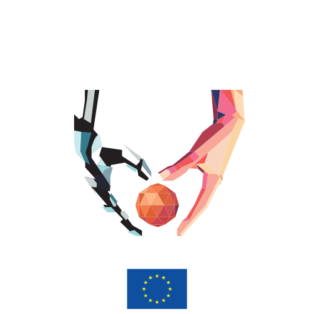
This blogpost has been written by Chidera Winifred Amazu, CISC Early Stage Researcher.
We are excited to have concluded with success our first Bootcamp under the Marie Skłodowska-Curie Actions (MSCA) project, Collaborative Intelligence for Safety-Critical Systems (CISC). The hybrid Bootcamp was held for one week from the 18th – 22nd October 2021 and welcomed participants from different parts of Europe. The onsite locations were Technical University Dublin (TUDublin) and Irish Manufacturing Research (IMR) in Ireland. Participants included partner companies, beneficiaries and our 14 Early-Stage Researchers (ESRs).
The goal of the Bootcamp was to introduce the project, Collaborative Intelligence for Safety-critical tasks, to our early-stage researchers who have diverse yet complementary skill sets aimed towards a human-centred approach to Artificial Intelligence (AI).
As a first joint meeting with all the ESRs, it was necessary to introduce them to the inter-disciplinary topics (across AI, Human Factors, Neuroergonomics and System Safety Engineering) that they will find relevant for their research topics.
Another vital aspect of this Bootcamp was communicating the importance of AI and Data Ethics to our future AI scientists. For a more practical approach to this topic on Ethical Impact Assessment (EIA), the ESRs explained in writing how they intended implementing EIA while working on their projects.
The overall learning outcome was for the ESRs to gain complementary knowledge and reflect on how other disciplines will also shape their research project. They shared their views on how they intended to implement the knowledge gained from these modules within their projects. Working on the first draft of their research and development plan with support from their supervisors and partners was also a crucial part of their assessment. For the researchers, this was a helpful introduction to the goal of the overall CISC project, as it was a very hands-on way to kick start their research.
Here are a few words from our ESR on how they felt about the Bootcamp:
“It gave me information about a lot of tools that I can deploy during my PhD plus the discussions about using those tools gave me a starting point to think about how we can design the experiments. Also, knowing about different ESR projects and their backgrounds was helpful “
“It covered a large range of relevant topics in a concise manner, presented by experts with a role in the project”
We look forward to our next Bootcamp on “Data collection and modelling possibilities for Human Centric AI” in Italy, as we wish our future Collaborative AI scientists the best in their research journey.
Thank you to all who taught the different module during the bootcamp.
– Introduction to Bayesian Belief Networks taught by Dr Anders Madsen (Hugin Expert, Ireland)
– Principles of Machine Learning by Prof. Gabriele Gianini (UNIMI, Italy)
– Human Factors and Engineering by Dr Maria Chiara Leva (TUDublin, Ireland)
– Neuroergonomics by Dr Ivan Gligorijević (mBrainTrain, Serbia)
– Engineering Principles in Safety-Critical Systems by Dr Micaela Demichela (POLITO, Italy)
– AI-driven automation (lab session) by Dr Philip Long (IMR, Ireland)
– Human Robotics Collaboration by Dr Farzad Naghdali (PILZ Ireland)
– European Union AI Ethical Guidelines by Prof. Aphra Kerr (TUDublin)
– Data Collection and Data Use: The Legal Issues by Dr Marian Jennings (TUDublin, Ireland)
– Research Integrity and Personal Development Plan by Giovanna Rampazzo (TUDublin)
